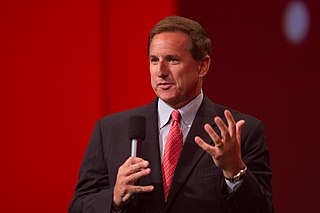A Quote by Lewis Schiff
If the question is, how do we best produce business people who can succeed in the post-Great Recession era, then I think the MBA programs and their connection to large companies remains intact but it's not the path to a "Business Brilliant" life. It's a path to a middle-class existence marked by large stretches of security and comfort with occasional eruptions that you're probably ill-prepared to handle. Do I sound too cynical?
Quote Topics
Best
Brilliant
Business
Class
Comfort
Companies
Connection
Cynical
Era
Existence
Great
Great Recession
Handle
How
Ill
Intact
Large
Large Companies
Life
Marked
Mba
Mba Programs
Middle
Occasional
Path
People
Post
Prepared
Produce
Programs
Question
Recession
Remains
Security
Sound
Succeed
Then
Think
Too
Related Quotes
A path is only a path, and there is no affront, to oneself or to others, in dropping it if that is what your heart tells you . . . Look at every path closely and deliberately. Try it as many times as you think necessary. Then ask yourself alone, one question . . . Does this path have a heart? If it does, the path is good; if it doesn't it is of no use.
It is not so much what we get out of life as what we put into it that determines how large our returns of happiness shall be. The triumphant life is to be achieved through service. But it must be free and not compulsory. . . . There is a place where the path of duty suddenly becomes the path of beauty.
The middle path makes me wary. . . . But in the middle of my life, I am coming to see the middle path as a walk with wisdom where conversations of complexity can be found, that the middle path is the path of movement. . . . In the right and left worlds, the stories are largely set. . . . We become missionaries for a position . . . practitioners of the missionary position. Variety is lost. Diversity is lost. Creativity is lost in our inability to make love with the world.
Look at every path closely and deliberately. Try it as many times as you think necessary. Then ask yourself and yourself alone one question. This question is one that only a very old man asks. My benefactor told me about it once when I was Young. And my blood was too vigorous for me to understand it. Now I do understand it. I will tell you what it is: does this path have a heart? If it does, the path is good. If it doesn't, it is of no use.
I talked with people starting up in the middle of the recession and employees, and supplies and office space were cheap. As far as companies that are already in existence, many became more creative with how they spent their money. A lot of them stopped wasting money that they didn't know they were wasting after they looked hard at their businesses. Some had to change business models because of the economy. Their market didn't exist or wasn't as big anymore.
The neoliberal programs of the last generation have in fact been, and were intended to be, a pretty serious attack on democracy, but also they've led to stagnation or decline for large parts of the population - the working class, the lower middle class, these people have essentially been cast aside.

































